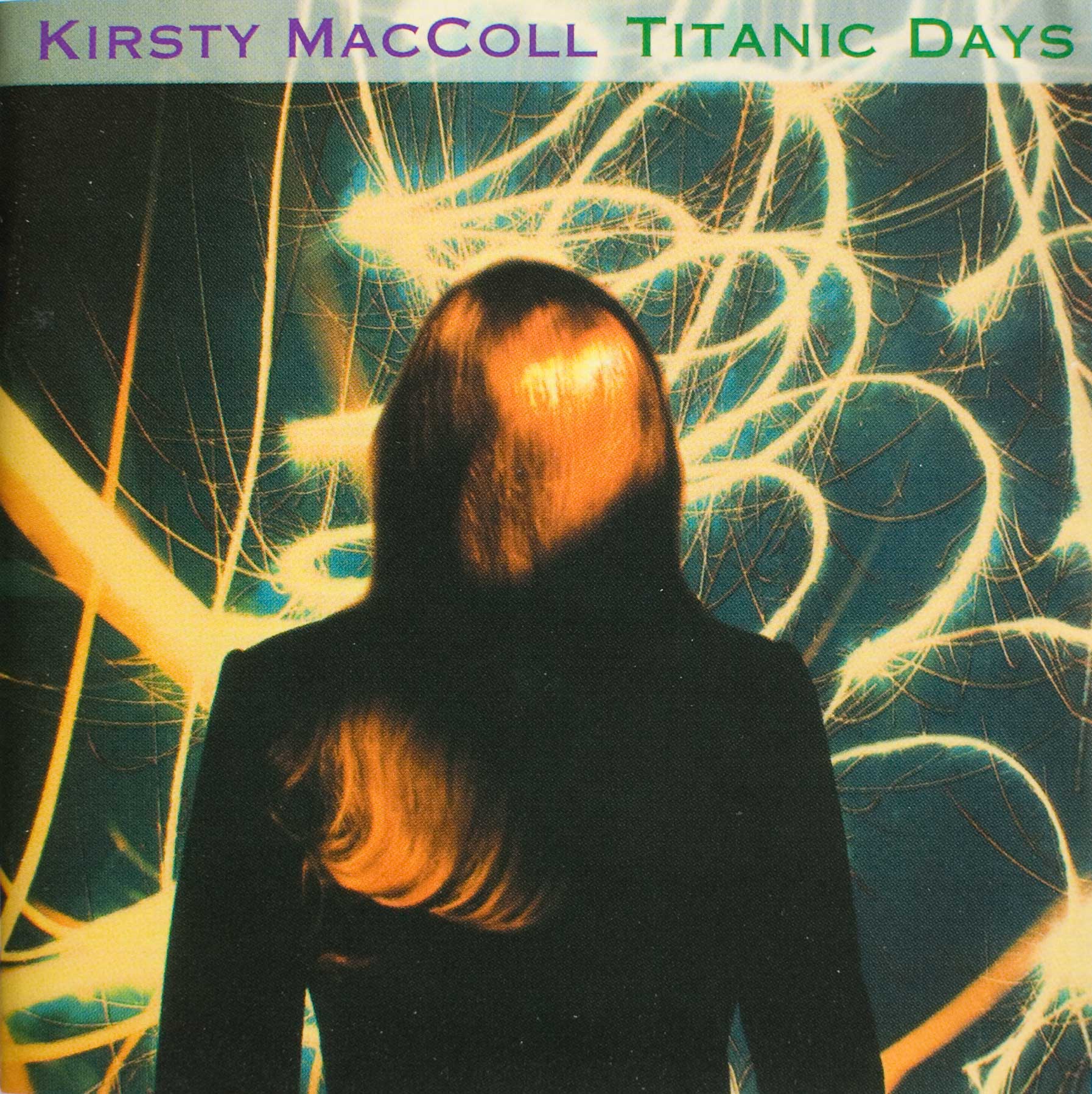Intelligent, witty, wilful, vulnerable, contrary, mind-bogglingly talented, possessing a steely resolve and yet still able to project a balance of both vulnerability and approachability utterly vulnerable, Kirsty MacColl, for all her glowing brilliance, never really managed to string together the career her immense talent deserved. This resulted in some of her albums becoming relative obscurities, such as Titanic Days, an album which was confusingly released in late 93 in the USA, where MacColl was a relative unknown, and in early 1994 in Europe, where her audience was much larger.
When 1991’s Electric Landlady, the follow up to her 1989 near-breakthrough Kite, was not the success it should have been, MacColl yet again found herself in the familiar situation of being dropped by another record label. Understandably dismayed at yet another stumbling block in her career, and also going through difficulties in her relationship with Steve Lillywhite, MacColl couldn’t have been blamed if she was tempted to step away from the limelight for a while. Luckily for her fans, Kirsty MacColl opted to channel both her positive and negative energies into Titanic Days, which was released by ZTT Records in Europe in a one-album deal. Writing in collaboration with former Fairground Attraction, Mark Nevin, they both found it within themselves to ensure that Titanic Days was a refreshingly honest assessment of their failed relationships.
“Angel” and Titanic Days’ title track were typically top draw pop songs from Kirsty MacColl, and both “Soho Square” and “Bad” are career-defining numbers, however it is a song which did not even make it on to Titanic Days that is the album’s most enduring legacy a quarter of a century later. “Dear John” is a breathtaking piece of writing with an emotionally overwhelming vocal performance, though perhaps MacColl felt it was too on the nose, so either baulked at recording a fully realised version, or simply vetoed the inclusion of it on the album. Years after MacColl’s death, a demo version of “Dear John” subsequently saw an official release, in a musically pared-back version of the song that accentuates the emotional devastation of the lyrics.
For all of its relative obscurity, Titanic Days is one of MacColl’s key releases, probably her most sympathetically produced albums (Lillywhite was no longer producing for obvious reasons) and proof of what she could achieve even with a reduced recording budget. Ironically it would be MacColl’s next release, the compilation, Galore, which would arguably prove to be her most enduring release, as it emphasised the consistency of her singles, as opposed to the patchiness of her albums. In regards to studio albums, she would release the latin rhythm dominated Tropical Brainstorm in 2000, before her tragic death at the end of that year.
Of all of Kirsty MacColl’s albums, Titanic Days is probably the one that most deserves reassessment. It found MacColl at something of a songwriting peak, yet is overlooked when compared to her major label work. While it was difficult to get hold of for years, a reissue in 2012 made it a little easier to get hold of.














No Comment